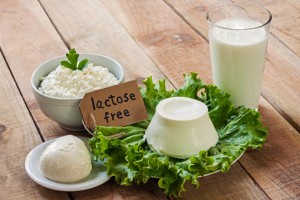Lose Weight > Common Sense To Lose Weight > Common Sense Article > Weight Loss After Menopause - Avoid These Foods
Weight Loss After Menopause - Avoid These Foods
There are several reasons for this. It's all part of the menopause process. Fortunately, you aren't stuck with the extra weight. There are things you can do to succeed at weight loss after menopause. They will probably be different from what has worked for you in the past.
If you are having trouble losing weight or keeping it off, you may be eating foods that aren't good for you and be unaware of it. Below are five foods and drinks that many people use regularly. These foods may be sabotaging your efforts to lose weight.
5 Foods/Drinks to Avoid for Achieving Weight Loss After Menopause
Soy
Eating lots of soy (which menopausal women are frequently encouraged to do) can interfere with thyroid function, lowering metabolism and contributing to weight gain. Unfermented soy foods are not healthy anyway -- they contain compounds that interfere with nutrient absorption. Many people are also sensitive to soy and may have allergic-type reactions to it. If you are going to eat soy, eat it only in it's fermented state -- soy sauce, tempeh, miso. Avoid soy in protein powders, supplements (check your labels, soy is added to many, many foods and supplements), tofu and soy milk.
Low-Fat and Nonfat Foods
Foods that have fat removed are left with either more protein or carbohydrates. Most low-fat and nonfat foods have more carbohydrates, and often added sugars. This will interfere with weight loss after menopause. Most carbohydrates and all sugars stimulate the production of insulin, which is the hormone that makes you store fat. Eating low-fat and nonfat foods also contributes to cravings, because we need good fats to feel satisfied, to build healthy cell walls, hormones, brain cells, and much more. Eating more carbohydrates also causes cravings and hunger, because the more insulin flowing in your body, the hungrier you get -- mostly for more carbohydrates.
Artificial Sweeteners
Diet soda or anything with artificial sweeteners may make you even fatter. Recent studies have indicated that eating artificial sweeteners may cause more weight gain than if you just ate the real sugar. If you understand how digestion works, and appreciate the magnificent design of your body, this seems to make sense. Digestion is tied to smell and taste, along with brain activity. When you smell something tasty, your mouth starts to water. This is your body preparing for digestion. The breakdown of foods begins in your mouth. Your stomach and other digestive organs prepare enzymes and hormones based on what you normally eat...this is why when you change your diet, it may take some time for your body to adjust. So what happens when you drink a diet soda? You taste something sweet, and your body prepares to digest sugar! It cannot prepare to digest a fake sugar, it wasn't designed for that.
Trans Fats -- Not to be Confused with Saturated Fats
These are fats that have had their chemical structure modified to be more convenient for the food processing industry. Another type of "food" your body doesn't recognize. Ingestion of trans fats is associated with cancer, diabetes, heart disease, immune function and obesity. Trans fats are found in most convenience foods, from crackers, bread and cookies to chips and salad dressings. Partially hydrogenated oil is the name on the label for trans fats. There may be trans fats even if the label says zero trans fats, due to lax labeling laws, and companies endeavoring to avoid claiming trans fats in their products. The only way to avoid trans fats is to avoid processed foods.
Coffee and other Caffeinated Drinks
Caffeine stimulates your stress hormones, which can interfere with thyroid hormone, therefore making your metabolism run even slower. Caffeine may also contribute to menopause belly fat and insulin resistance.
Related Articles
-
Weight Loss Myth? Orange Juice is a Great Way to Start the Day
As more and more people start to look at healthier drink options for w
-
Close Kept Secrets To Weight Loss Lesson 11
You are the GREATEST, arent you? You are focusing on you and attracti
-
Shocking Ways Strength Training Impacts Memory Loss
It can be like a speeding train once it starts. Memory loss is
-
How I Changed My Diet To Lose Weight & Keep It Off
-
How to Reduce Calories Naturally And Properly
You can reduce your calorie consumption when youre conscious method
-
Fitness Tips Easy Way To Lose FatLose Weight
There are many things we can do every day to help us lose unwanted bod
- DON'T MISS
- Drinking Green Tea May Help You Lose Weight
- Save Our Sky
- Statins usage increasing among seniors
- How Successful Are Diet Plans?
- Burning off Fat Swiftly - Is It Genuinely Achievable?
- Weight Gain After Menopause
- Can the Secret to Successful Weight Loss Be as Simple as Chewing More?
- How you can Shed Weight – 3 Ideas on ways to drop excess weight simple and Wholesome – Diet
- Fastest Way To Lose Belly Fat: Five Stategies To Get Rid Of Tummy Fat!
- Simple Tips For Effective Weight Loss Now




